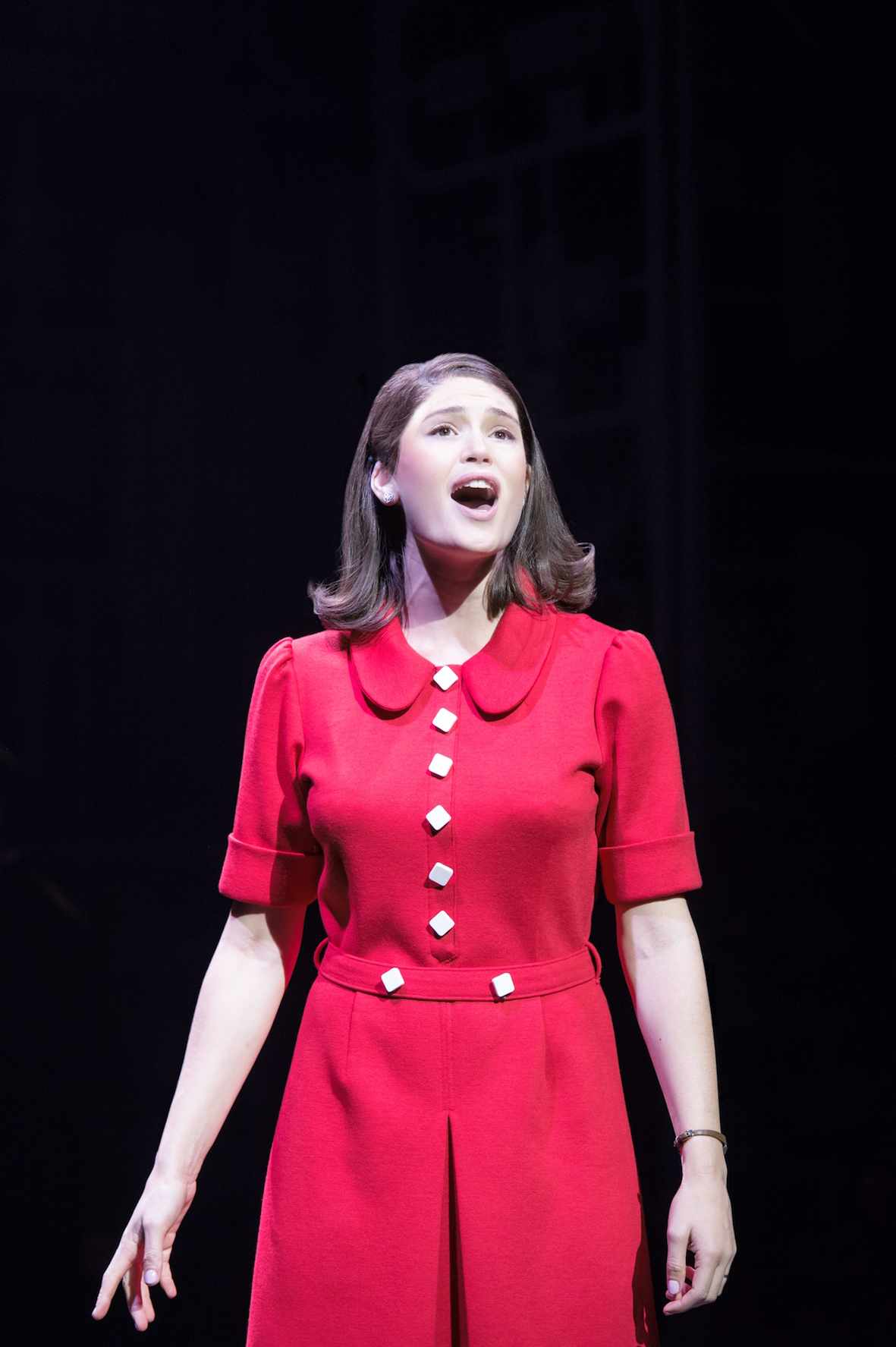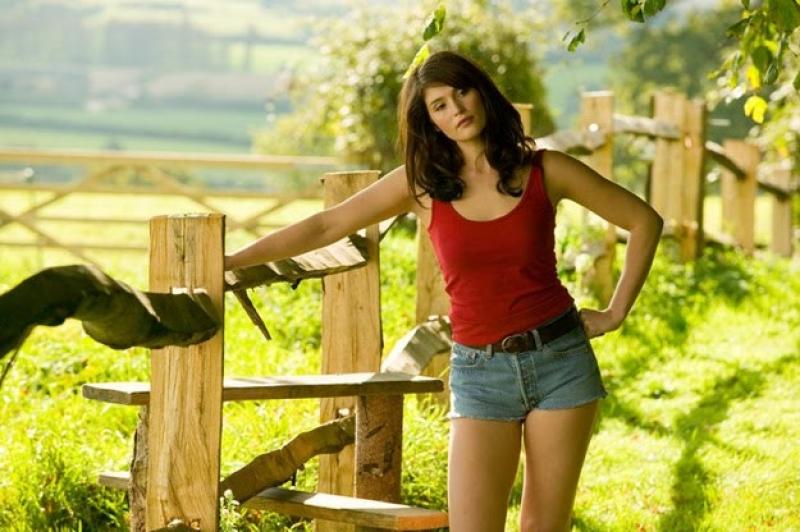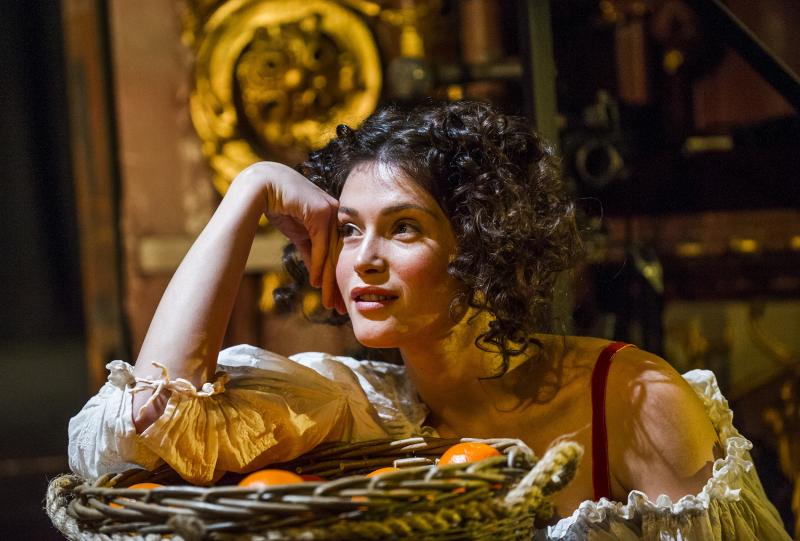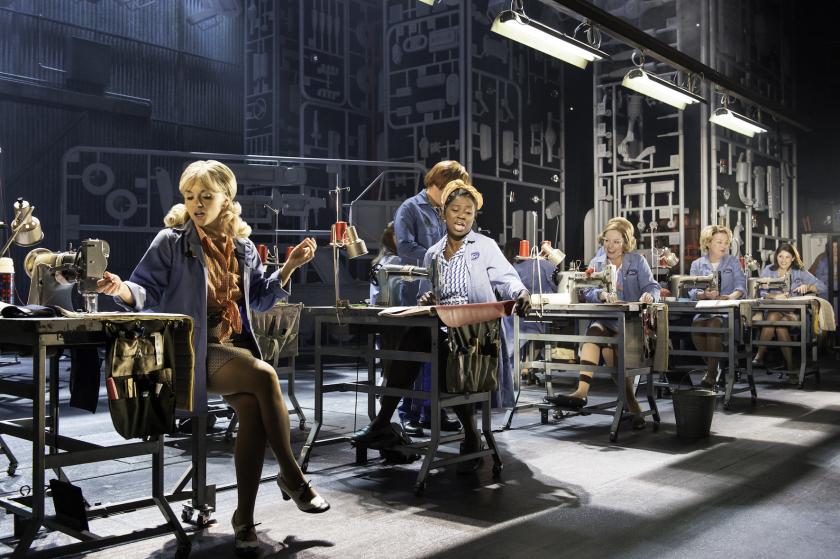A significant milestone was passed this week: Tuesday 4 November was Equal Pay Day. From that day until the end of the year, the average woman in this country effectively works for free compared to her male counterpart, such is the disparity in wages. And in case you were wondering, it’s getting worse, not better. The moment arrived three days earlier this year than last.
Over 40 years ago, the 187 women who worked at the Ford plant in Dagenham took extraordinary risks to try and do something about this injustice. They went out on strike in 1968, holding out against the management and eventually bringing production to a complete halt in their attempts to secure an wage equal to that of their male colleagues. It was a landmark moment in British labour relations, and lead directly to the Equal Pay Act of 1970. Their story was made into a slightly disappointing film in 2010; now it has come to the West End as a musical.
Harold Wilson becomes something of a slapstick comedy turnIt has a script by the ubiquitous Richard Bean (his Great Britain is still playing elsewhere on the West End, and One Man, Two Guvnors has barely faded from memory), music by James Bond and Sherlock composer David Arnold, and lyrics by Richard Thomas (for whom we have to thank for Jerry Springer: The Opera). The show is clearly intended to please the widest possible audience, so it's no surprise that the darker elements of the film version have been omitted, including the PTSD suffered by one of the machinists’ husbands, while the technicolour Sixties aesthetic has been dialled right up. The film made a valiant attempt to portray the grey grimness of life on a Dagenham estate, but the cleverly-designed stage set is vibrant from the outset.
As we’ve come to expect from films-turned-musical (Billy Elliot and Legally Blonde spring to mind) the songs are nothing memorable. The Sixties setting provides a pleasingly wide range of musical styles to incorporate, and the lyrics are often witty, but you’d be hard pressed to hum even one of the numbers 10 minutes after leaving the theatre. That said, the vocal performances from the cast are impressive, especially the ensemble numbers.  The dialogue has its moments, too. Harold Wilson (played by Mark Hadfield) becomes something of a slapstick comedy turn in Bean’s hands, confusing the “breadth of Great Britain” with its “breasts” and declaring that “it’s easy to be in opposition - it’s mostly eating and drinking. Now, we’re the government”. Sophie-Louise Dann’s Barbara Castle isn’t quite as whimsical, but she too delivers some great one-liners. The crowning performance, though, comes from Steve Furst as American Ford supremo Tooley. His raucous musical number at the start of the second act (which jams in every US stereotype you can thing of, including the ridiculous way they pronounce the word “vase”) is a triumph and his sinister dialogue later on provides some much-needed depth.
The dialogue has its moments, too. Harold Wilson (played by Mark Hadfield) becomes something of a slapstick comedy turn in Bean’s hands, confusing the “breadth of Great Britain” with its “breasts” and declaring that “it’s easy to be in opposition - it’s mostly eating and drinking. Now, we’re the government”. Sophie-Louise Dann’s Barbara Castle isn’t quite as whimsical, but she too delivers some great one-liners. The crowning performance, though, comes from Steve Furst as American Ford supremo Tooley. His raucous musical number at the start of the second act (which jams in every US stereotype you can thing of, including the ridiculous way they pronounce the word “vase”) is a triumph and his sinister dialogue later on provides some much-needed depth.
Because that’s where this piece falls down - surprising, given the emotive nature of its source material. Gemma Arterton (above right) gives a creditable performance as strike ringleader Rita O’Grady, but the uniformity throughout of the script and the songs give her little room to progress from one state to another. Her troubled relationship with husband Eddie (Adrian Der Gregorian) receives a fair amount of time and several musical numbers, yet it is hard to believe in either its conflict or its resolution. The lack of emotional intensity was made plain at the very end, as four of the real-life Dagenham machinists came on stage to join the curtain call to an enormous reaction from the audience. Whatever the failings of the show we had just sat through, or however many times their story is adapted and altered, it will never change the fact that these women remade the world for the better.
GEMMA ARTERTON ON STAGE AND SCREEN
Tamara Drewe (2010). Arterton plays Posy Simmonds's modern Hardy heroine (pictured below) in barbed rural romp shot by Stephen Frears
The Master Builder, Almeida Theatre (2010). Arterton stars opposite Stephen Dillane as passions blow hot and cold in uneven take on Ibsen
 Clash of the Titans (2010). Arterton comes up Persil white as the Olympians of Tinseltown plan a classical killing in 3D
Clash of the Titans (2010). Arterton comes up Persil white as the Olympians of Tinseltown plan a classical killing in 3D
Prince of Persia: The Sands of Time (2010). Fantastical desert epic beguiles the eye while deep-freezing the brain
The Little Dog Laughed, Garrick Theatre (2010). Arterton plays straight woman to Tamsin Greig's mega-star comic turn in Broadway satire
Byzantium (2013). Arterton is va-va-voom vampy in Neil Jordan's return to bloodsucking
Song for Marion (2013). Under Arterton's tutelage, Terence Stamp and Vanessa Redgrave work the tear ducts in paean to old age
The Duchess of Malfi, Sam Wanamaker Playhouse (2014). In a bright opening for London's shadowy and atmospheric new theatre, Arterton is radiant as Marlowe's tragic heroine
The Voices (2015). Arterton is Ryan Reynolds' victim in Marjane Satrapi's surreal portrait of an American psycho
 Nell Gwynn, Apollo Theatre (2016). Arterton charms king and audience in West End outing for the Globe's jolly Restoration romp (pictured by Tristram Kenton)
Nell Gwynn, Apollo Theatre (2016). Arterton charms king and audience in West End outing for the Globe's jolly Restoration romp (pictured by Tristram Kenton)
The Girl With All the Gifts (2016). Bestselling dystopian book reborn as underpowered movie
Saint Joan, Donmar Warehouse (2016). Revival of Shaw classic is a tour de force for near-miraculous Arterton
Their Finest (2017). Resoundingly British and sheerly enjoyable story of filmmakers joining the fight against Hitler















Add comment